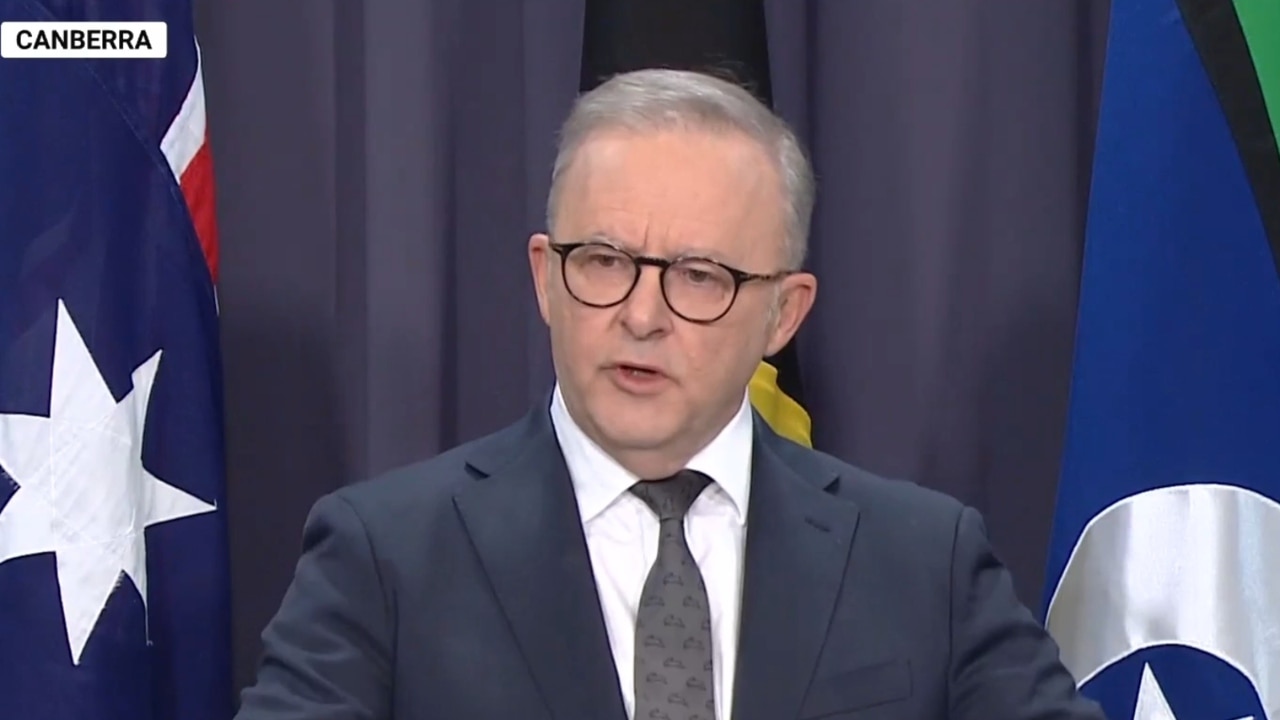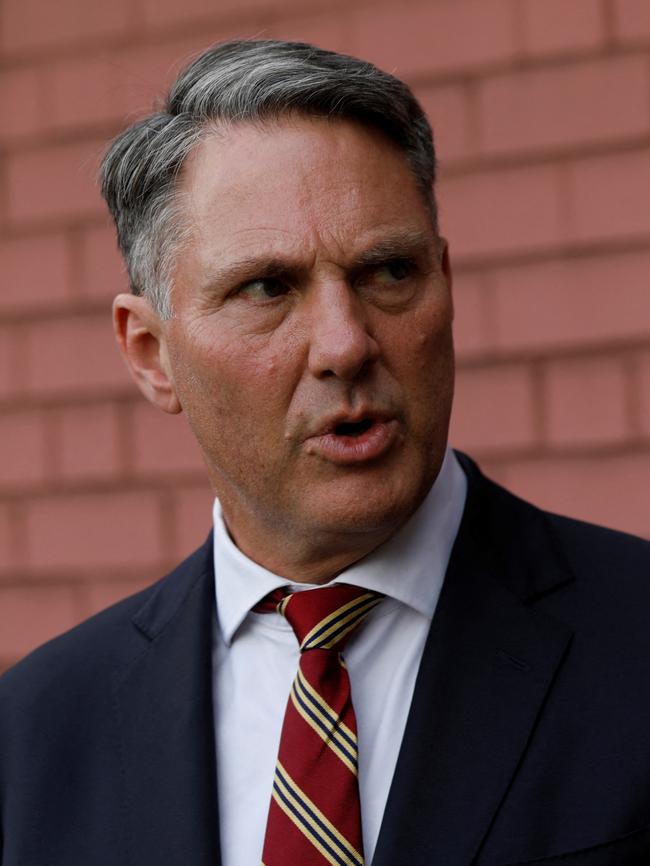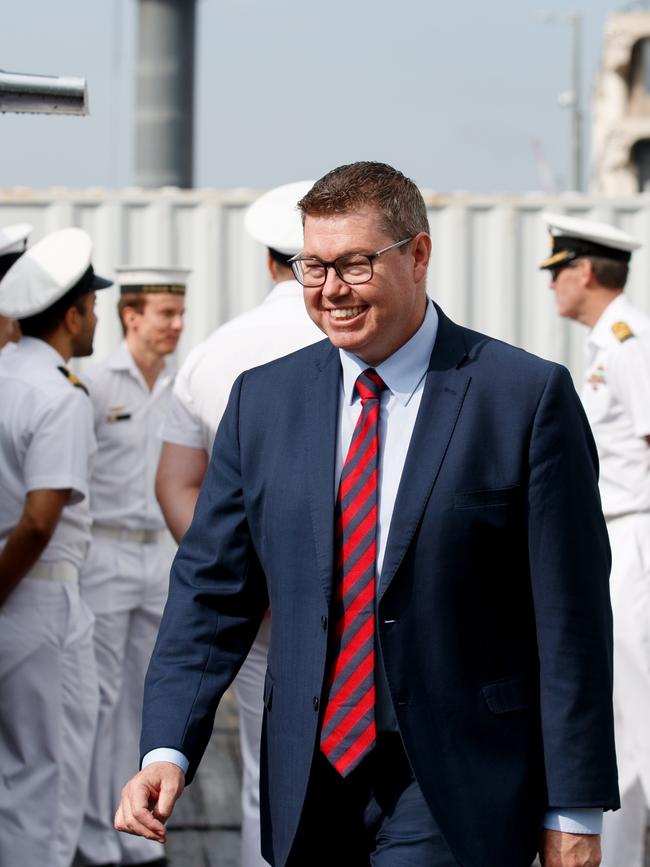
The biggest winner in the reshuffle is Pat Conroy, who deservedly moves into full cabinet not as minister for defence industry – his outer ministry job title – but as Minister for Defence Industry and Capability Delivery.
The name change is significant because it means Conroy has full responsibility for the bulk of the Defence budget, delivering equipment including the AUKUS submarines. Defence Minister Richard Marles may get the international travel, an annual speech at the Shangri-La Dialogue and AUSMIN consultations, but follow the money – Conroy has the budget reins.

Marise Payne had defence and Christopher Pyne defence industry in Malcolm Turnbull’s cabinet from mid-2016 to mid-2018. What started out as a chummy relationship ended with Pyne refusing to speak at the same conferences as Payne. Two cabinet ministers fighting over one department’s budget does not equal policy happiness.
An unexpected loser from the reshuffle is Marles. He has long directed officials to address him as Deputy Prime Minister rather than Defence Minister. It’s a mystery why Marles would prefer a faux job – one with no budget or department – over a very real one.
As a longstanding defence minister to John Howard, Robert Hill ruefully observed that he was “the minister assisting the prime minister” on defence. Particularly after the East Timor intervention and following 9/11, Howard knew what he wanted in defence and drove policy outcomes.
No one could accuse Albanese of being strongly interested in defence. He has been a bystander to the major equipment project announcements, is interested in AUKUS only when international meetings take place and has said nothing about the biggest defence crisis – the mass departure of personnel. Without steerage from the Prime Minister, a reshuffle putting two ministers into cabinet with defence responsibility will produce turf wars and risks policy failure.

The other big loser from the reshuffle is Clare O’Neil. Spare a thought for her. Without any preparation she was landed after the May 2022 election into a hugely difficult policy slot intended for Kristina Keneally. It is almost as though Labor wanted the Peter Dutton-driven Home Affairs portfolio to fail. The department was intended to bring a stronger, more coherent focus on domestic security.
After the May 2022 election the Australian Federal Police was taken from Home Affairs and returned to the Attorney-General’s portfolio. It is not in Albanese’s press release from Sunday but ASIO now leaves Home Affairs as well. Home Affairs is left with immigration and Border Force and with “policy responsibility” for the under-resourced but critically important areas of cyber and critical infrastructure security.
As of Sunday afternoon, the Defence website still notes that O’Neil was “sworn to administer the Department of Defence”. If this meant anything, it pointed to Home Affair’s role in some aspects of cyber security performed by the Australian Signals Directorate.
Will new Home Affairs Minister Tony Burke take on these domestic security cyber roles? My guess is: no. It is not just O’Neil who has been diminished but the Department of Home Affairs itself. It is reverting to its old implementing agency role, not one capable of developing strong security policy.
The weakening of Home Affairs suits people inside the Albanese government who want attention taken off security.
They include Penny Wong, Jim Chalmers and secretary of the Prime Minister’s department Glyn Davis, all of whom have turf, budget and/or ideological reason not to focus more attention on our worsening strategic position.
Albanese maintains a large inner cabinet of 23 people. That contrasts with 15 in the first Hawke cabinet and 18 in the first Howard cabinet – and the eight members of John Curtin’s war cabinet. It’s way more people than can fit comfortably around the cabinet table.
Then there are a further seven outer ministry positions and no fewer than 12 assistant ministers.

Albanese also has added three special envoys – Peter Khalil on social cohesion, Andrew Charlton on cyber security and digital resilience and Luke Gosling on defence, veterans affairs and northern Australia.
The Prime Minister says these three will not be decision-makers or have budget allocations but they “can give thought” to policy issues. Imagine the joy of a minister, grinding through the thankless cogs of government, to be told a clever special envoy wants to share new policy ideas with them!
The reshuffle does nothing about the reality that Australia’s strategic position is worsening and the risk of conflict growing. The government doesn’t see the problem, can’t admit to how dire it is and can’t find the language to discuss it with Australians.
Albanese says this new cabinet is the team he will take to the next election. It looks as though he will not proceed with a national security adviser.
There is an opening for the opposition here. A political-level national security adviser and a small but competent staff capable of developing policy, not just co-ordinating people, would partly close an alarming policy gap.
We need a minister with the savvy to engage as a political equal with the US cabinet-level national security adviser. Between AUKUS, China, Russia, Iran and North Korea there is enough happening and in prospect to make this role central to future Australian governments.
Shaping a new national security adviser position would be a more useful step than fighting over the bones of Home Affairs. That dinosaur has run over the policy cliff and is already sinking into the Canberra bog of once-tried policy ideas.



Anthony Albanese’s ministerial reshuffle weakens the Department of Home Affairs, gives Defence two ministers in cabinet – a recipe for blame shifting – and leaves the Prime Minister without policymaking heft across national security. Instead, we have a gaggle of ministers with overlapping powers, lots of opportunity for turf battles and more opinions than policy solutions.